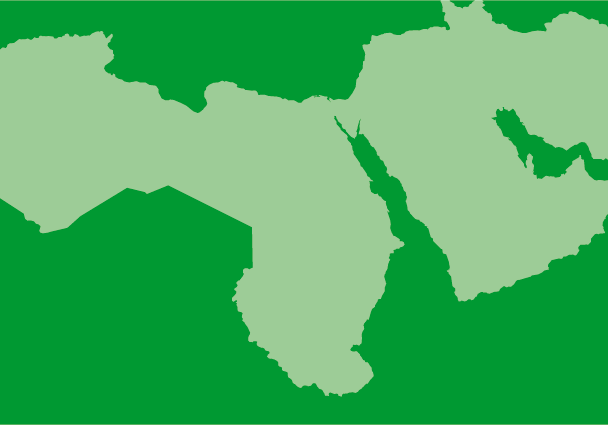In its third letter to President Assad of Syria, the ICJ urged the Syrian Government to allow Mr. Al-Maleh, a prominent human rights lawyer, to leave the country.
Mr. Al-Maleh was recently tried by a military court for his human rights work and was amnestied on 16 July.
Letter adressed to the President of the Syrian Arba Republic [full text, PDF]
19 August 2003
HE Mr. Bashar al-Assad
President of the Syrian Arab Republic
Presidential Palace
Abu Rummaneh, Al-Rashid Street
Damascus, Syrian Arab Republic
Fax: + 963 11 332 3410
Your Excellency,
The International Commission of Jurists (ICJ) consists of jurists who represent all the regions and legal systems in the world working to uphold the rule of law and the legal protection of human rights. The ICJ’s Centre for the Independence of Judges and Lawyers is dedicated to promoting the independence of judges and lawyers throughout the world.
We are writing to you for the third time regarding the case of Mr. Haythem al-Maleh, a lawyer and Director of the Syrian Human Rights Association. Even though we are pleased that Mr. al-Maleh was recently amnestied, we are still concerned that he is prevented from leaving the country.
As you are aware, Mr. al-Maleh was disbarred for misconduct last June by the Damascus Lawyers’ Disciplinary Council. In a letter addressed to you on 31 July 2002, we noted with alarm that Mr. al-Maleh was not able to attend the disciplinary hearing and that, as the Minister of Justice maintains supervisory authority over the Disciplinary Council, it is not an independent and impartial body. Furthermore, we expressed our concern that Mr. al-Maleh’s disbarment was to punish him for statements he had made to the press in defence of two clients, Mamun Al-Homsi and Riad Seif, the latter a well-known political opposition figure.
In August 2002 the Military Prosecutor filed charges against Mr. al-Maleh for, among other things, establishing a human rights association without the approval of the Ministry of Social Affairs and Labour and distributing a magazine without permission. The ICJ sent you a second letter on 26 September urging your Government to drop all charges against Mr. al-Maleh. Nevertheless, Mr. al-Maleh’s trial in a military court started on 12 July 2003 and ended on 16 July, when he was amnestied.
Despite the amnesty, a pre-existing order banning Mr. al-Maleh from leaving Syria is still in force. This became clear when he was prevented from crossing the border between Syria and Jordan on 11 March. Mr. al-Maleh challenged this unwritten order in an administrative court on 6 April, but the court has not reached a decision yet. The next hearing is scheduled for 19 August.
We would like to remind your Government that the prohibition on Mr. al-Maleh from leaving Syria is a direct violation of the International Covenant on Civil and Political Rights (ICCPR), to which Syria is a party. The ICCPR establishes each person’s right to leave his or her own country and also lays down the only permissible restrictions that can be imposed on this right:
Article 12.2. Everyone shall be free to leave any country, including his own.
Article 12.3 The above-mentioned rights shall not be subject to any restrictions except those which are provided by law, are necessary to protect national security, public order (ordre public), public health or morals or the rights and freedoms of others, and are consistent with the other rights recognized in the present Covenant.
The prohibition on Mr. al-Maleh does not fall under any of these exceptions, as a key element of any restriction imposed on this right is that the prohibition be in conformity with the law. The order prohibiting Mr. al-Maleh from leaving the country was secret and without any reference to any law. This kind of order does not meet the criteria established by the Human Rights Committee, which stated on its interpretation of Article 12.3 that “The application of restrictions in any individual case must be based on clear legal grounds and meet the test of necessity and the requirements of proportionality”.
We consider that the purpose of the prohibition on Mr. al-Maleh is to continue to harass and punish him for his work as a human rights lawyer. In this regard, we would like to, once more, draw your attention to the United Nations Basic Principles on the Role of Lawyers, which were adopted by the U.N. General Assembly in 1990. The Principles establish that Governments have the duty to ensure that lawyers can fulfil their functions without fear of harassment or intimidation in the following terms:
Principle 16. Governments shall ensure that lawyers (a) are able to perform all of their professional functions without intimidation, hindrance, harassment or improper interference; and (c) shall not suffer, or be threatened with, prosecution or administrative, economic or other sanctions for any action taken in accordance with recognized professional duties, standards and ethics.
We therefore urge your Government to lift the travel restrictions on Mr. al-Maleh and allow him to discharge his professional duties without fear of harassment.
Please receive the assurances of my highest consideration.
Sincerely,
Ernst Lueber
Acting Secretary-General
Cc: HE M. Toufik Salloum
Permanent Mission of the Syrian Arab Republic to the UN in Geneva
Rue de Lausanne 72
1202 Geneva, Switzerland
Fax: 022 738 4275
His Excellency Major General ‘Ali Hammud
Minister of the Interior
Ministry of Interior
Merjeh Circle
Damascus, Syrian Arab Republic
Fax: + 963 11 222 3428
His Excellency Faruq al-Shar’a
Deputy Prime Minister and Minister of Foreign Affairs
Ministry of Foreign Affairs
Al-Rashid Street
Damascus, Syrian Arab Republic
Fax: +963 11 332 7620/332 0686
His Excellency Nabil al-Khateb
Minister of Justice
Ministry of Justice
Al-Nasr Street
Damascus, Syrian Arab Republic
Fax: +963 11 224 6250
Mr Ahmad ‘Idu, President
Syrian Bar Association
Mayssaloune Street
Damascus, Syrian Arab Republic
Fax: + 963 11 22 14 099




